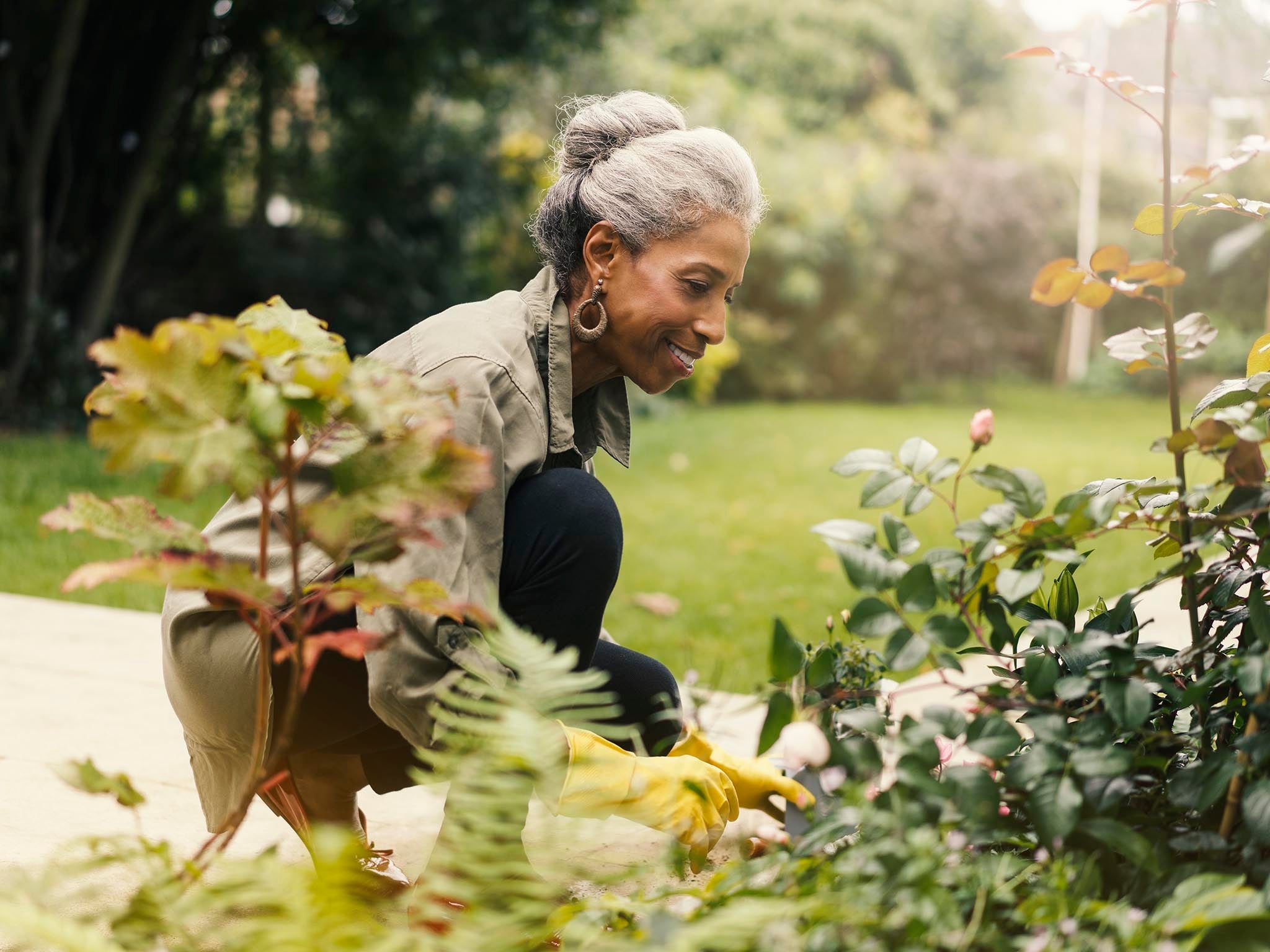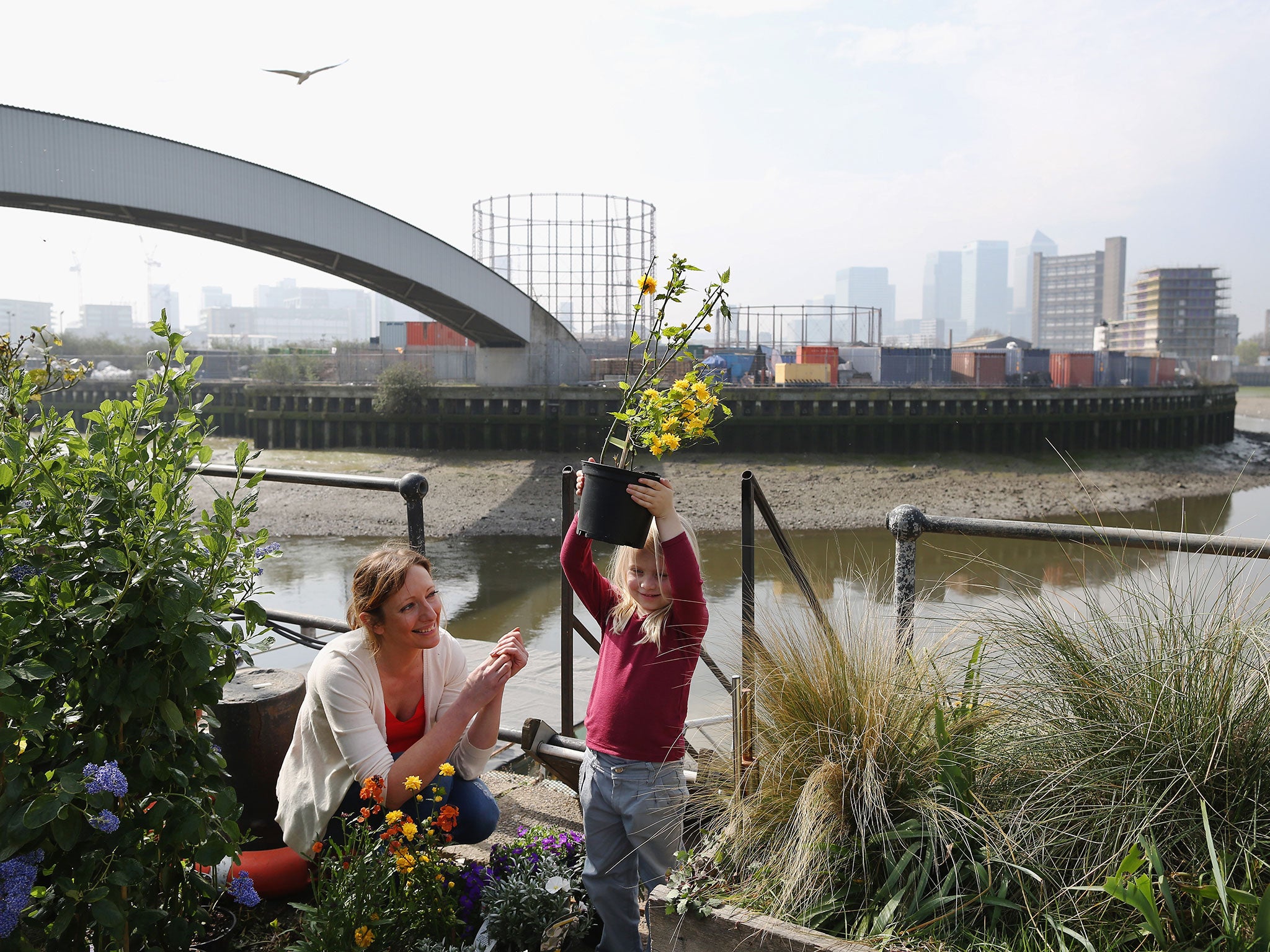The power of plants: the benefits of our leafy friends are greater than you think
Happy Talk: Plants don’t just make us feel calmer and more content – it’s possible they also boost concentration and creativity, finds Christine Manby

We all know about the benefits of getting out into green space, but if you don’t live close to a park and your average day doesn’t allow you to skip off for a forest frolic, how can you still benefit from plant power? Well, you can always bring nature home with you or even take it into the office. For the price of a week’s worth of cappuccinos, you can buy a pot plant. They’re not just decorative.
Thirty years ago a study by Nasa was the first to show the benefits of pot plants on health. It’s estimated that as many as 4 million people die worldwide each year due to the effects of air pollution and much of that is indoor air pollution. Fortunately Nasa discovered that certain types of indoor plant can actually improve air quality by absorbing toxic chemical nasties like formaldehyde which is found in cigarette smoke and also commonly used in furniture manufacture.
It’s not only what the plants absorb but what they put out into the atmosphere that can help. When we breathe, we take in oxygen and release carbon dioxide. During the daytime, when plants are photosynthesising, they do the opposite – absorbing CO2 and releasing oxygen, helping us feel more awake.
Plants also release moisture, increasing the humidity of the air around them, soothing dry skin and easing coughs and colds. It’s not just humans who can benefit from plants’ moisturising properties. An art curator friend recommended keeping house plants or cut flowers near oil paintings, to keep them from cracking too.
In Nasa’s tests to find the most effective pollution-busting plants, the Areca palm, also known as the butterfly palm, came out on top. Though as single plants can reach 12 feet in height, it’s probably not ideal for the average office cubicle. The peace lily is a smaller option, effective at absorbing pollutants and humidifying the air (though keep it away from children and cats since the plant’s leaves themselves are toxic).

Even plants that don’t have the Areca palm’s air clearing qualities can make us happier. Recently, researchers from Sweden’s Uppsala University and the Norwegian University of Life Sciences followed the progress of more than 400 cardiac patients at a Norwegian rehabilitation centre. Half the patients waited for their treatment in a waiting room decorated with a few tatty pot plants. For the other half, the same waiting room was decorated with 28 much better-looking specimens.
When the patients were questioned about their general sense of well-being throughout the four-week experiment, the researchers discovered that the group which waited in the plant-stuffed room, felt much happier and healthier than those who waited in the company of a solitary sorry spider plant. Why is this important? Because there’s no end of research to suggest that the happier you feel, the healthier you’ll be.
Plants don’t just make us feel calmer and more content. It’s possible they also boost concentration and creativity. At Cirencester’s Royal College of Agriculture, they discovered that students experienced a 70 per cent increase in attentiveness when they were taught in rooms filled with plants. The same study also showed that those classes given in plant-filled rooms had better attendance figures. A University of Michigan study went on to prove that being “under the influence of plants” has a significant positive effect on memory retention. As far as I’m aware, they weren’t studying cannabis.
Meanwhile, in 2015, researchers from the Universities of Essex and Westminster found that just 30 minutes spent working in the garden can lower levels of fatigue, depression and anger and boost self-esteem. If that gardening takes place on an allotment, there is the added benefit of companionship and all the positives that brings.
Bonkers as it may sound, I feel companionship when I’m watering the plants in my tiny London yard even if there’s no-one else about. Like cats and dogs, it seems to me that plants enjoy being touched and groomed. As I pick off dead leaves and pour on the plant food, I also take the time to have a little chat, like a hairdresser making small talk.
“Going anywhere nice on holiday?”
“Of course not. I’m an amelanchier.”

The Royal Horticultural Society recently revealed that plants really do grow more quickly if we talk to them and they seem to have a preference for the female voice. It may be that plants grow more quickly when spoken to because of the carbon dioxide we exhale which is, as we’ve seen, like oxygen to them but last year, IKEA sponsored an experiment that seemed to show its about more than that. They placed two plants in a school in Dubai. One of the plants was played recordings of positive messages. The other heard only negative, such as “you’re ugly” and “you look terrible in green”. The plant which was “bullied” quickly wilted and faded. The plant which heard only happy things thrived.
Regarding plants and bullying, a writer friend recently pointed out that the gardening club she’d joined on Facebook was the only social media group she’d been a part of where the members acted towards one another with unfailing respect and were never rude or boastful. It was a calm space where questions were met with kind answers. No-one was judged for their gardening failures and tips for success were happily shared.

I could relate to that. For me, flipping from the news sites to the pictures on Monty Don’s Instagram account is instantly calming. In addition to the loveliness of the pictures, the happy comments beneath remind you that not everyone is secretly full of hate. Plant people, like pet people, at least seem nice.
My dad was a keen gardener, who could make just about any plant grow and flourish. As a child, I didn’t understand the pleasure he seemed to get from the hours he spent pottering around outside, perfecting a garden which I now know was beautiful because of his curation rather than the result of happy chaos.
A couple of years before he died, as he planted an apple tree at my sister’s house, he told me that a true gardener plants for future generations. On the day of his funeral, I picked a single perfect apple from that tree and understood. I resolved to learn all the gardening wisdom that I stupidly failed to gather from Dad while he was around. I’ve kept the last plant Dad gave me – a yellow-flowered succulent – alive for five years. Admittedly, it can take some serious neglect, but when a neighbour asked for a cutting, I felt inordinately proud.

I’m lucky enough to have a tiny bit of outdoor space but even a single cactus on the windowsill can give you the buzz of nurturing another living thing. I buy potted herbs like basil and rosemary from the supermarket instead of just getting the ready-cut leaves in a bag. The smell of basil leaves as you water them is an instant blast of summer, in reward for a tiny bit of care. Perhaps plants make us feel better because they inspire us to be better. Now I must go and talk to my pots.
Join our commenting forum
Join thought-provoking conversations, follow other Independent readers and see their replies
Comments
Bookmark popover
Removed from bookmarks